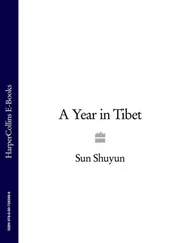She must have been overjoyed to be one of only fifteen girls chosen out of the 100 at the hospital, and of thousands more who never got that far.
‘Why so few women? Why me? I have asked that question millions of times,’ Wang said. I waited for her to answer herself.
‘Perhaps they thought we would be a burden. But I was healthy and strong,’ she finally said, though still uncertainly. The truth may be different. All the top leaders of the Party and the Army had their wives with them on the Long March. They wanted an equal number of other women to come along. Wang was a Party member; she had always delivered whatever was expected of her, and more; and she was known for firing two pistols simultaneously, hitting the bull's-eye with both. What she did not know at the time was that the Red Army was about to abandon Jiangxi and set up a new base elsewhere.
At 5 o'clock sharp on the afternoon of 16 October, the bugle sounded, as the sky turned pink in the setting sun. Wang marched out of Ruijin with the General Health Unit. Now it was clear: the Central Column was essentially the government on the move, more than 10,000 people, including many Party officials from all levels of the Jiangxi Soviet administration. She wore the dark blue jacket she had received that day, with matching trousers tucked inside her socks, and a pair of new sandals. The pack on her back held a light quilt, one more pair of sandals, seven kilos of grain, and an enamel washbasin dangling on a strap. A hat made of double-layered bamboo covered the pack and would be useful in the autumn rain. Now she felt like a real soldier, ready for battle, except that she had no rifle; but there were six stretchers in her care – the 1st Army insisted that all injured officers above brigadier level be taken on the March. She had seen many battles, but this was something different. Taking the wounded to the front? She knew not to ask too many questions.
SOLDIER HUANG was adding frantically to the defences of his foxhole – putting stones on the two layers of logs, and more pine branches on the stones. Everything was wet, the trees were dripping, and the mud stuck to his shoes. As he looked out nervously, he could see one of the Nationalist blockhouses, or ‘turtle-shells’ as they called them, 600 metres away. It was a solid brick building like a round granary with gun slits, stronger-looking than anything he had seen in the villages. They had been preparing themselves for a week and he wondered when the fighting would start. But he did not want to dwell on it, so he tried humming one of the songs he had learned in the last few days:
Comrades! Ready with your guns!
Charge with one heart,
Struggle and fight to kill!
Comrades! Fight for freedom!
Fight for the Soviets!
He struggled to remember the next line. A faint light on the horizon was visible through the rain, which had been falling steadily ever since they had reached the front. As dawn broke, he could hear birds singing. Suddenly, they went quiet and a heavy growling noise took over. He leapt into his foxhole. A few seconds later the sky was black with planes, like huge flocks of crows, and the crump of bombing began. The din became deafening. One bomb dropped close by and his foxhole collapsed, leaving just his head free. He dug himself out, and glanced round: two-thirds of the foxholes his company had built were flattened, and the trench was destroyed.
The captain ordered the men to take position. Huang put his rifle down and lay next to it in the wet soil of what was left of the trench. Looking to left and right, he could see quite a few men missing – the bombing had taken its toll. And then the artillery began. The ground shook and flowers of earth blossomed and fell on him, almost burying him. Within ten minutes a quarter of the company was dead or wounded.
When the shelling stopped, Soldier Huang was still kneeling on the sodden ground. A man rushed to pull him up, shouting that the infantry would soon advance on them. He only had five bullets. The captain shouted, ‘Don't fire until they are three metres away.’ Huang could see their white cap badges and the sun flashing on their weapons. They fired and he missed his target. A few fell, but within seconds the enemy was on them.
It was bayonet to bayonet, kill or be killed. He accounted for two of them. He was barely thinking, too numb even to feel fear, and screaming like a madman to release the panic bottled up in his chest. Before long, the Nationalists retreated, and the captain ordered his men to do likewise. As they staggered away, their feet fighting with the clay earth, the shelling began again. This was the daily pattern.
At dusk, everything fell quiet. There were piles of bodies within 70 metres of their trench, enough to form a human barricade. He shuddered to see an officer walking around, finishing off those who were still groaning from their wounds. He was told it was to stop them from surrendering and giving information to the enemy. Once they had buried the dead, they gathered around the mess-tent. He had little appetite although he had eaten nothing the whole day. The cook had prepared food for over 100 but there were only thirty left in his company. After the meal, they retreated five kilometres in the dark, to dig another trench. This was Soldier Huang's first battle and he was only 14. The Guangchang battle in April 1934 lasted eighteen days and the Red Army lost 6,000 men, with 20,000 wounded. It was the heaviest blow the Red Army had suffered up till then, and it was the turning point in Chiang's campaign.
I found Huang through the pensioners' office of the Ruijin county government, which, in the Communist tradition, had excellent records of the Long March survivors and anyone they wanted to keep tabs on. ‘I'm not sure how much he can tell you,’ the clerk said slowly after he had finished the newspaper he was reading. ‘He is only a peasant. You should really talk to old Wu. He used to be the Prime Minister's bodyguard. He knows things, but he is in hospital. Last year we still had a dozen. Now there are only eight left.’ Two lived in the mountains with the nearest road five miles away, three were in hospital, and one was away visiting relatives. ‘Why don't you start with old Huang? If he is no use, come back to me.’
I should have felt discouraged but I did not. I knew what he thought: it was only worth talking to the heroes and the big decision-makers; but their stories are already in our history books, told and retold until they have become symbols, the eternal refrain. Perhaps for him, Huang was not enough of a committed revolutionary, but his ordinary life as a foot soldier on the March was just what I was missing. With luck it would tell me the unadorned truth about what the rank and file really experienced.
I took a rickshaw – there were no taxis – and set off for Huang's village on the outskirts of Ruijin. We went past the farmers’ market, through the houses of the old quarter with their tiled roofs and curling eaves, and over the sandstone bridge across the Mian River, swathed in mist. There was a grace and tranquillity to the scene. Suddenly we turned a corner and the illusion was dispelled – we were in a huge square of incongruous pink concrete houses and shops, with a fountain in the middle – a giant steel ball on a tower. The rickshaw driver turned proudly towards me, ‘This is our new town centre. Our Party secretary got a promotion for building it.’
I was relieved to leave the theme-park square behind and go back to the green countryside with its endless paddy-fields. It was next to one of them that I found Huang's village. All its 1,000 people shared the name of Huang, and the clan's ancestor shrine stood prominently in the middle. I was directed to find him there, listening with a huge crowd, not to the village head relaying the latest Party instructions, but to an eager salesman preaching the benefits of Heart K, which was supposed to give you more blood. Huang was a convert, taking two ampoules every day. ‘I want to live as long as possible,’ he told me, waving the small box of magic potions he had just bought. He did not look as though he needed them. He was short, hard and lean, with a piercing gaze. He walked upright, faster than I could easily follow. On the way to his house, he introduced me to his cousins, nieces, nephews, grand-nephews, great-grand-nieces, three brothers and two sisters-in-law. It was still a closely knit clan.
Читать дальше
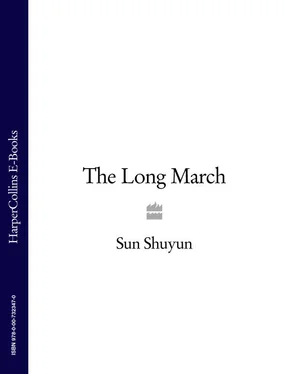
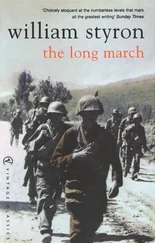
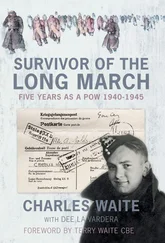
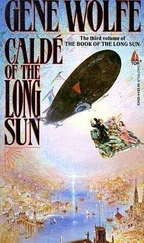
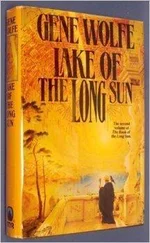


![Джеффри Арчер - The Short, the Long and the Tall [С иллюстрациями]](/books/388600/dzheffri-archer-the-short-the-long-and-the-tall-s-thumb.webp)

